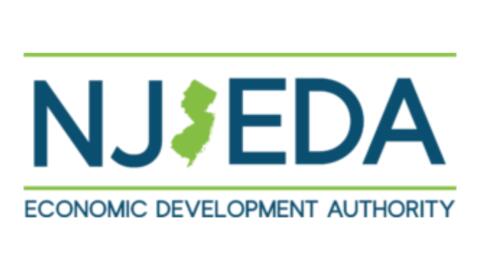The New Jersey Economic Development Authority will begin accepting applications in May for a number of the recently announced programs that are aimed at providing $85 million in grants to various types of small businesses.
The programs include $25 million for microbusinesses (5 or fewer employees), $15 million for small businesses (6 to 50 employees), $10 million for child care centers and $35 million for eating/drinking establishments. More information is available here.
The EDA is calling it Phase 4 of its Small Business Emergency Assistance Grant Program. And, if your business did not get any funding during Phase 3, you get to go first. (Please note, you must preregister.)
The Dates You Can Apply for Grants
- May 3: Businesses that did not apply for, or were not approved for, Phase 3 funding
- May 5: Restaurants and child care providers
- May 10: Microbusinesses
- May 12: All other businesses
Where You Can Preregister and Apply
Applications for each category will be open for a period of one week and will be accepted on a first-come, first-served basis, based upon the date and time the EDA receives a completed application submission.
Please note, all businesses must preregister in order to be eligible to apply. The pre-registration period will begin at 9 a.m. Monday, April 19, go through 5 p.m. April 29.
The programs are part of the five-bill, $100 million relief package that was passed by the Legislature and recently signed by Gov. Phil Murphy.
Who is Eligible:
EDA officials said Phase 4 funds aim to reimburse lost revenue as a result of the business interruption caused by the pandemic between March 1, 2020, and the date of the grant agreement, providing the necessary resources to any eligible business that has:
- Been temporarily shut down
- Been required to reduce hours
- Had at least a 20% drop in revenue
- Been materially impacted by employees who cannot work due to the outbreak
- A supply chain that has materially been disrupted and therefore slowed firm-level production during the pandemic
How Much Money You Can Receive
Grant awards will be calculated based on the number of full-time equivalent employees businesses employ:
- Microbusinesses with five or fewer FTEs and sole proprietorships will receive up to $10,000
- Businesses with six to 25 FTEs will receive up to $15,000
- Businesses with 26 to 50 FTEs will receive up to $20,000
A grant size estimator is available here.
To maximize the funding businesses can receive in Phase 4, EDA officials said grant awards will be based on the peak FTE count from a business’s past eight quarters of WR-30 filings.
Businesses must use funds from the grant programs for reimbursement of lost revenue as a result of business interruption caused by the pandemic. Businesses may not use grant funds for capital expenses.
More Details on the Programs
These four programs have $85 million in funds available:
- Restaurants: $35 million of funding to support businesses classified as “Food Services and Drinking Places” under NAICS code 722, given the disproportionate impact these businesses have experienced due to the pandemic, including caps on on-location dining and unusual costs they incurred to adapt their business models for safe operations.
- Child care providers: $10 million of funding to support businesses classified as “Child Day Care Services” under NAICS code 624410, given the disproportionate impact these businesses have experienced due to the pandemic, including caps on capacity numbers and unusual costs they incurred to adapt their business models for safe operations.
- Microbusinesses (5 or fewer FTE): $25 million of funding to support businesses that have had five or fewer FTEs in each of their past eight quarters of WR-30 filings (including businesses with no FTEs), given the unique financial vulnerability experienced because of the pandemic by microbusinesses, which typically have lower financial reserves.
- Other small businesses (6-50 FTE): The remaining $15 million of funding will support businesses that are not eligible under the microbusiness category.
The Small Business Emergency Assistance Grant Program was created to provide funding as efficiently and quickly as possible to small and medium-sized businesses that needed payroll and working capital support as a result of adverse economic impacts following the March 9, 2020, declaration of a State of Emergency and a Public Health Emergency.
Since the launch of Phase 1 of the program on April 6, 2020, the Authority has approved nearly 44,000 grant applications representing over $214 million in total grant funding awarded through Phases 1-3.
The program has evolved with each phase to offer expanded eligibility and award amounts.
Tim Sullivan, the CEO of the EDA, said the programs are playing an important role in getting help to businesses.
“The economic impact this pandemic has wreaked in New Jersey is still being felt one year after it started, and it has disproportionately affected woman- and minority-owned businesses,” he said. “The $85 million in additional funds committed to Phase 4 of the Small Business Emergency Assistance Grant Program will directly and expeditiously help these businesses stabilize their operations and minimize potential furloughs or layoffs.
“Businesses that are still struggling cannot wait for assistance, and we are working uninterruptedly at the NJEDA to ensure that our communities don’t just survive the pandemic, but emerge from it stronger, fairer and ready to rebuild.”



